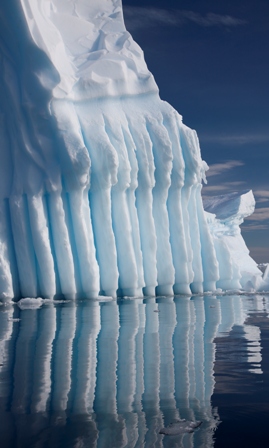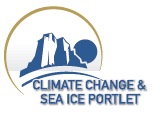UN Framework convention
 Sea ice forming with tides in Greenland (Photo: GettyImages)The International response to climate change was initiated at the Earth Summit in Rio De Janeiro in 1992 with the signing of the U.N Framework Convention on Climate Change (UNFCCC).
Sea ice forming with tides in Greenland (Photo: GettyImages)The International response to climate change was initiated at the Earth Summit in Rio De Janeiro in 1992 with the signing of the U.N Framework Convention on Climate Change (UNFCCC).It is an international treaty on environmental law aiming at reducing the greenhouse gas concentrations in the atmosphere.
The UNFCCC does not lay down any binding limits of reduction, but divides the signatories to the convention in to three categories each category agreeing to reduce their emissions of greenhouse gas a certain amount.
First category of industrialized countries, so called Annex I countries, agree to reduce their emissions of greenhouse gasses to targets that are mainly set below their 1990 levels. These countries are Australia, Austria, Belarus, Belgium, Bulgaria, Canada, Croatia, Czech Republic, Denmark, Estonia, Finland, France, Germany, Greece, Hungary, Iceland, Ireland, Italy, Japan, Latvia, Liechtenstein, Lithuania, Luxembourg, Monaco, Netherlands, New Zealand, Norway, Poland, Portugal, Romania, Russia, Slovakia, Slovenia, Spain, Sweden, Switzerland, Turkey, Ukraine, UK and USA.
Annex II countries, developed countries that are to pay for the costs of developing countries for their efforts to reduce greenhouse gasses, are Australia, Austria, Canada, Denmark, Finland, France, Germany, Greece, Iceland, Ireland, Italy, Japan, Luxembourg, Netherlands, New Zealand, Norway, Portugal, Spain, Sweden, Switzerland, UK, USA and the European Union.
Finally, in the Annex III are developing countries and countries with economy in a transition.
One of the most significant COPs has been the COP-3 in 1997 in Kyoto, Japan, where the so called Kyoto Protocol, the legally binding protocol on emission reduction, was adopted.
Source: The UN Framework Convention on Climate Change








